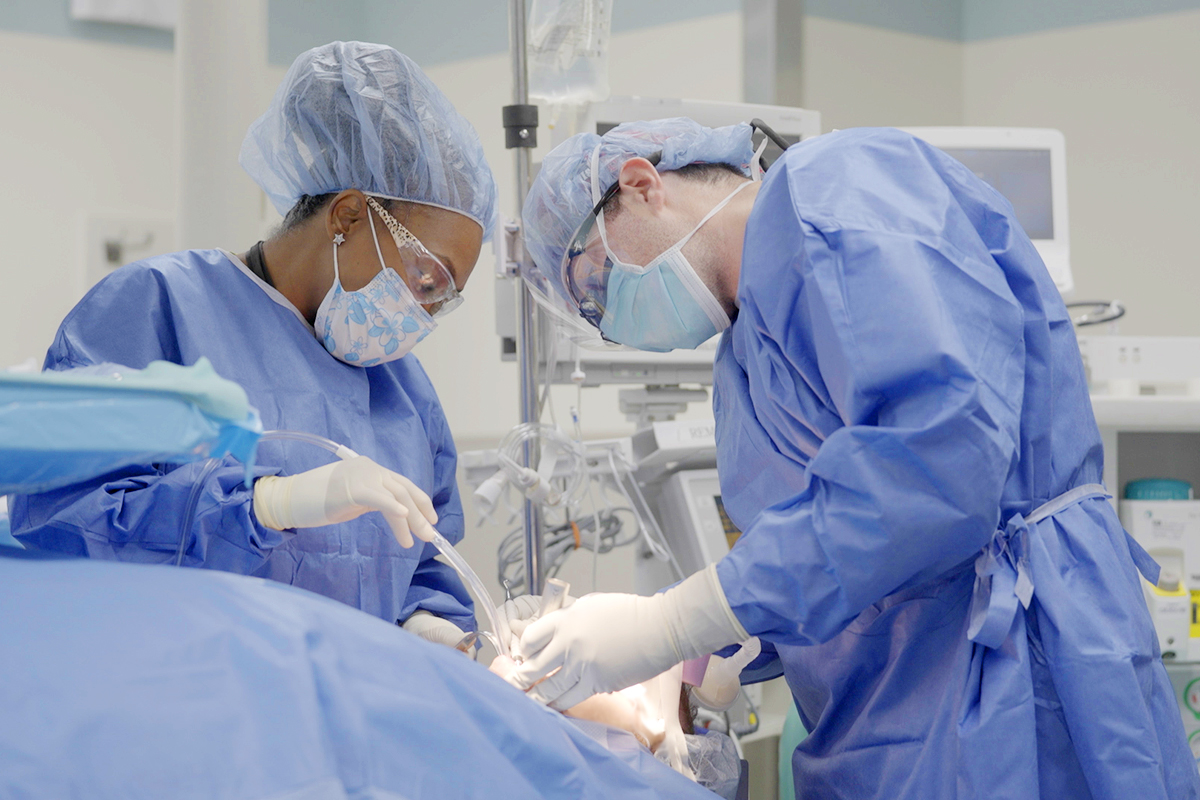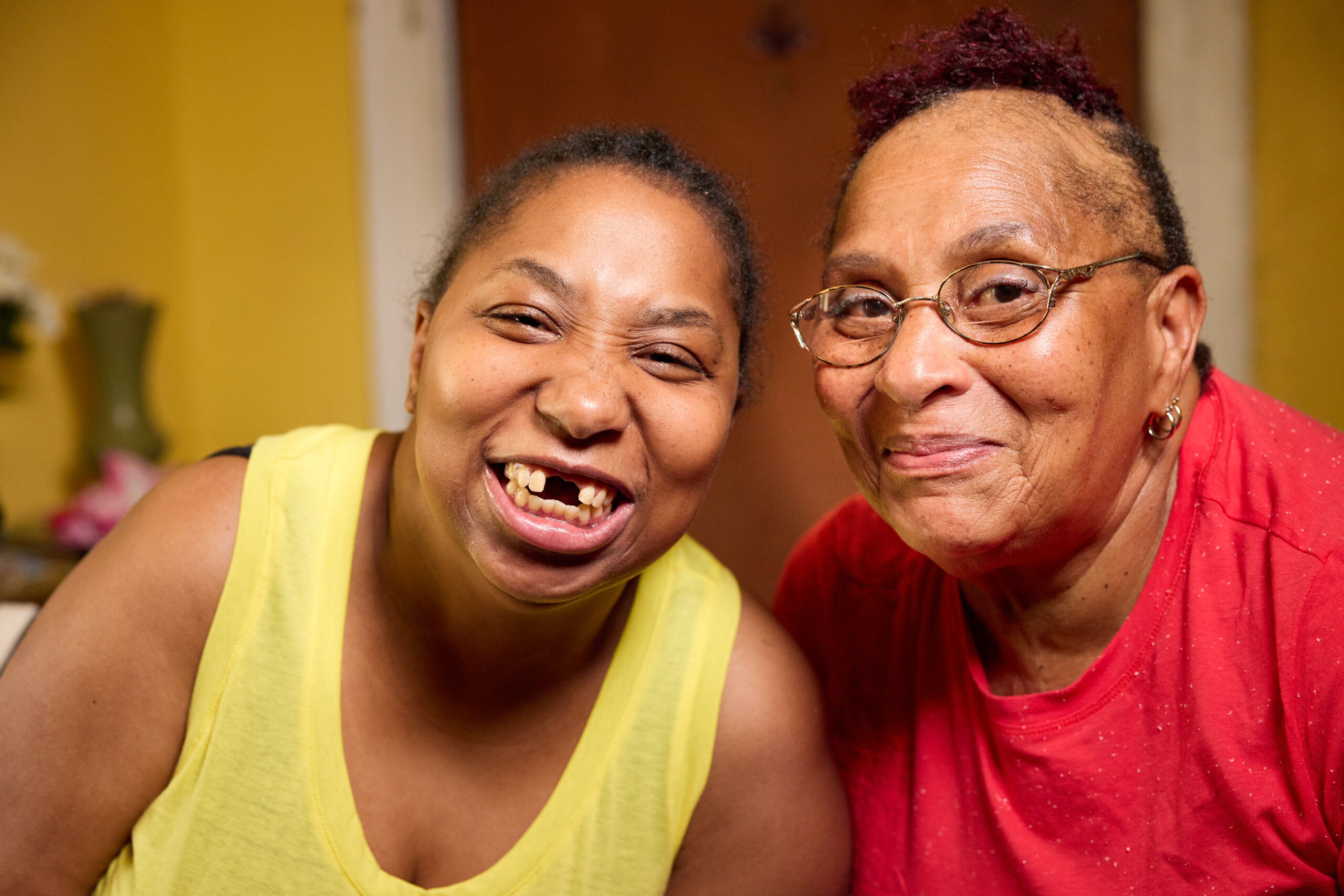Collaboration provides in-hospital dental care for adults with disabilities

Some people with severe physical, mental or developmental disabilities can only undergo dental procedures while under general anesthesia, but such specialized care is expensive and hard to find. As a result, many people with special needs are unable to access routine — or even emergency — dental care and end up with rotting teeth, inflamed gums and chronic dental pain that make it difficult to eat, talk and function in daily life.
A program to provide dental care to patients with severe disabilities in the St. Louis area has been established by A. T. Still University-Missouri School of Dentistry & Oral Health (ATSU-MOSDOH) and Affinia Healthcare, a federally qualified health center, along with Barnes-Jewish Hospital and Washington University School of Medicine in St. Louis. Patients in the program need specialized care for severe dental problems that can only be provided under general anesthesia in a hospital.
“Half a million people in the St. Louis area are living with disabilities, but few dentist offices accept special-needs patients, and even fewer accept Medicaid,” said Robert J. Schmidt, DDS, who spearheaded the collaboration. He is an assistant professor and the former director of the special care unit director of special needs dentistry at the St. Louis Dental Center. The St. Louis Dental Center is a partnership of ATSU-MOSDOH and Affinia Healthcare. “This program is a way for patients who have severe dental problems and have been unable to undergo treatment in a general dental setting to receive comprehensive dental care under general anesthesia. This collaboration among four exceptional institutions — Barnes-Jewish Hospital, the highest-ranked hospital in Missouri; ATSU-MOSDOH, a socially responsible dental school; Washington University School of Medicine, and Affinia Healthcare, a stellar community health center — benefits vulnerable people with disabilities.”
The program was piloted in the fall of 2021 and launched this year, with the help of Affinia Healthcare, a nonprofit dedicated to providing care to underserved populations in the St. Louis area. Affinia Healthcare, working with ATSU-MOSDOH faculty and staff, identifies people who need special-care dentistry and arranges for them to receive care at Barnes-Jewish Hospital.
Twice a month, one operating room at the hospital is dedicated to such patients, and care is provided by a team of ATSU-MOSDOH dentists, Washington University physicians and Barnes-Jewish clinical staff. The hospital bought specialized equipment for dental surgery, including a portable dental cart and a portable X-ray machine. Washington University and Barnes-Jewish Hospital are providing their services at no charge to the patients. Affinia Healthcare patients are generally covered by MO HealthNet for these services or are encouraged and assisted to apply for coverage. Those not eligible for coverage are charged in accordance with a deeply discounted fee schedule for services.

“All parties worked diligently to achieve this pioneering agreement, making it possible to provide this higher level of special-care dentistry for patients with special needs,” said Dwight McLeod, DDS, ATSU-MOSDOH dean. “We are the only such public-private partnership in eastern Missouri dedicated to special needs dental care for underserved populations. Our experienced team of highly skilled providers will deliver compassionate dental care to these patients, at an affordable fee, close to home. This is the kind of access to dental care that families, loved ones and advocates for people with severe mental and developmental disabilities have wanted and have been asking for over many years.”
This collaboration is part of a broader effort to ensure access to quality emergency and comprehensive dental care for all residents of St. Louis, led by Affinia Healthcare and ATSU-MOSDOH. In 2015, the two established the St. Louis Dental Center to address the paucity of oral health services for underserved, vulnerable populations in St. Louis and provide comprehensive, affordable oral health-care services to patients of all ages. The center started providing special-needs dentistry in 2017 and has since treated 230 patients with special needs. But some patients’ needs surpass the capabilities of even the special-care unit at the center.
“People with special needs sometimes seek care for acute dental pain in our emergency department, but because of the severity of other patients’ illnesses and injuries, patients with a tooth problem may find themselves waiting for a long time to be seen by our care team,” said Jackie Martin Jr., MD, the vice president of perioperative services at Barnes-Jewish Hospital. “We would try to refer special-needs dental patients to a clinic, but the nearest one that provides this kind of specialized care is in Kansas City, and patients often don’t have the means to travel there. These patients were not getting care in the community, and if we didn’t find a way to provide it, who would?”
Added Alan Freeman, PhD, president and CEO of Affinia Healthcare: “We consider this to be a landmark achievement in our ability to provide comprehensive care to our particularly vulnerable and underrepresented patient populations.”
The reasons people need to receive dental care under general anesthesia in a hospital vary widely. Many have intellectual or developmental disabilities that prevent them from effectively communicating with dentists, or that make the experience of undergoing a dental exam while awake unbearably confusing and frightening. Some have movement or muscular disorders that interfere with opening the mouth, swallowing or holding still. Certain co-existing medical conditions such as brain injuries, spinal cord injuries and obesity also may indicate a need for general anesthesia.
Such patients require the services of a fully staffed hospital, including anesthesiologists to care for patients before, during and after administering anesthesia; radiologists to perform and interpret imaging; hospitalists to care for patients who need to be admitted; ear, nose and throat physicians to consult with dentists on complicated cases; and clinical lab scientists to perform blood work and other tests.
“These are patients who, unfortunately, have hurdles to obtaining treatment,” said Ivan Kangrga, MD, PhD, a professor of anesthesiology at Washington University and the director of quality and safety for perioperative services at Barnes-Jewish Hospital. “I’m happy and proud to be part of a team that is providing top-level care to this underserved population of dental patients with special needs.”
Repairing years of neglect takes hours, so only two patients with special needs can be treated a day. There are 80 people on the waiting list, and the number is growing as more people learn of the program.
“We add one to two new patients to our list every week,” Schmidt said. “These are often people in a lot of pain. Before this program, we would have to tell parents that there was no one around to take care of their son or daughter. It was really discouraging. Everyone deserves respect and care. I am grateful that we can provide this service for some of the most vulnerable members of our community.”

Source: Read Full Article